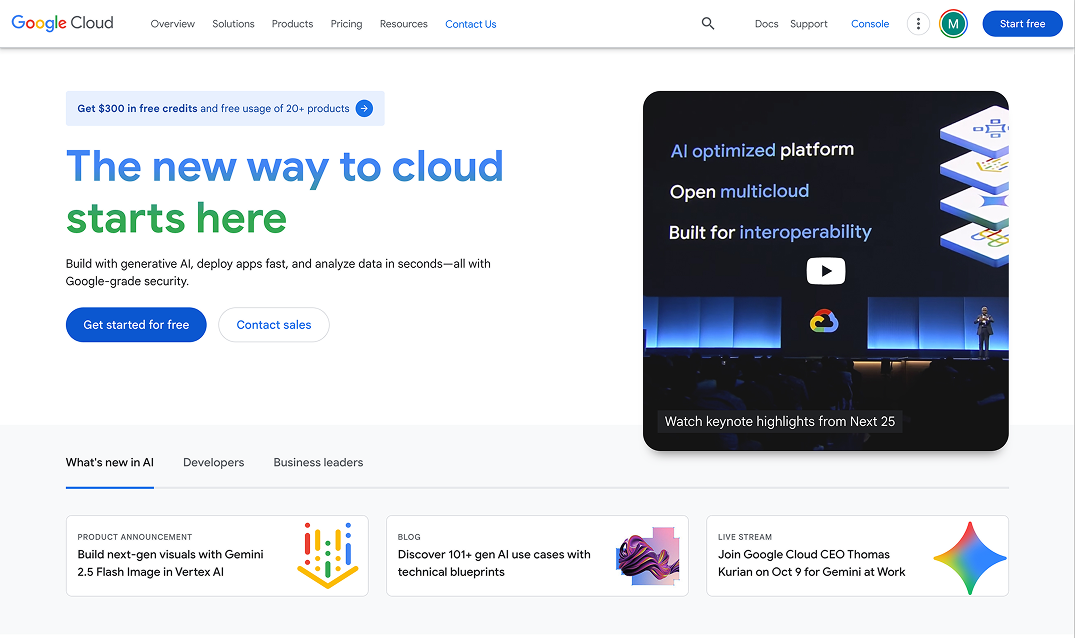AlloyDB for PostgreSQL is Google Cloud’s answer to the challenge of scaling relational databases. It’s a fully-managed, PostgreSQL-compatible database that delivers 4x faster performance for transactional workloads and a stunning 100x speedup for analytical queries compared to standard PostgreSQL. For businesses running mission-critical applications on PostgreSQL, AlloyDB provides enterprise-grade performance and reliability without the need for costly, time-consuming manual tuning.
Why AlloyDB is a Strategic Upgrade for PostgreSQL
Performance Without Compromise: AlloyDB achieves its incredible speed through a disaggregated architecture that separates compute and storage, combined with an intelligent, multi-layered caching system. For transactional workloads, this results in significantly higher throughput and lower latency. For analytics, its built-in columnar engine processes complex queries at speeds that rival dedicated data warehouses—all on your live, transactional data.
100% PostgreSQL Compatibility: This is the most critical feature. You can migrate an existing PostgreSQL database to AlloyDB with zero application code changes. All your existing tools, drivers, and ORMs work seamlessly. It’s a simple, low-risk path to a massive performance upgrade.
AI-Powered and Fully Managed: AlloyDB is designed to be a “hands-off” database. Its AI-powered autopilot system handles provisioning, maintenance, patching, and backups automatically. It learns your workload and optimizes performance in the background, freeing your engineering team from the burden of database administration and allowing them to focus on building your application.
Real-World Strategic Metrics
- Transactional Performance: 4x faster than standard PostgreSQL on OLTP workloads.
- Analytical Performance: 100x faster than standard PostgreSQL on analytical queries.
- Availability: A 99.99% uptime SLA, including maintenance, for mission-critical reliability.
- Migration Effort: Zero code changes required for existing PostgreSQL applications.
- Total Cost of Ownership: Customers report up to 2x better price-performance compared to self-managed PostgreSQL.
Who Needs This to Win
Ideal Customer Profile:
- Businesses running high-throughput, performance-sensitive applications on PostgreSQL.
- Companies looking to consolidate transactional and analytical workloads to simplify their data architecture (HTAP).
- Organizations that are migrating from legacy, proprietary databases (like Oracle) and want a high-performance, open-standard alternative.
- SaaS providers who need to offer enterprise-grade performance and reliability to their customers.
Decision Maker Roles:
- CTOs and VPs of Engineering who are responsible for the performance and scalability of their application platforms.
- Database Administrators & Platform Engineers looking to reduce the operational burden of managing PostgreSQL.
- Architects designing next-generation applications that require both fast transactions and real-time analytics.
Common Use Cases That Drive a Competitive Edge
High-Performance Transactional Systems: Power e-commerce platforms, financial trading systems, and other mission-critical applications that demand low latency and high throughput. AlloyDB ensures a smooth user experience even under peak load.
Real-Time Operational Analytics (HTAP): Run complex analytical queries directly on your live transactional data. Power real-time dashboards, generate operational reports, and feed live data to other systems without impacting the performance of your primary application. This eliminates the need for costly and complex ETL pipelines to a separate data warehouse.
Building Scalable AI Applications: Use AlloyDB’s built-in support for vector embeddings to build powerful AI-driven applications like semantic search and recommendation engines. Its tight integration with Google Cloud’s Vertex AI makes it the ideal database backend for modern ML workloads.
Effortless Legacy Database Modernization: Migrate from expensive, restrictive databases like Oracle to a modern, open-standard platform. AlloyDB’s performance and enterprise-grade features make it a compelling and low-risk choice for modernization projects.
Critical Success Factors
Pricing Reality Check:
- Usage-Based: You pay for the resources you consume: vCPU, memory, storage, and network egress. There are no upfront license fees.
- Higher Baseline Cost: An AlloyDB instance is typically 2-3x more expensive than a similarly-sized Cloud SQL for PostgreSQL instance.
- Price-Performance: While the absolute cost is higher, the price-performance ratio is significantly better. The 4x performance boost often means you can run your workload on a smaller instance, making it more cost-effective overall for demanding applications.
- Free Trial: Google Cloud offers a 30-day free trial for an AlloyDB instance, making it easy to test and validate its performance benefits.
Implementation Requirements:
- The migration from a standard PostgreSQL database is extremely straightforward, often taking just a few hours using standard tools like
pg_dumpandpg_restoreor Google’s Database Migration Service. - No changes to your application code are needed. The biggest “requirement” is simply making the strategic decision to invest in a higher-performance database tier.
Integration Ecosystem
Google Cloud Native:
- Seamless, first-party integration with the entire GCP stack, including Vertex AI, BigQuery, Looker, and Google Kubernetes Engine (GKE).
Open-Source Compatibility:
- Works out-of-the-box with all standard PostgreSQL tools, including psql, pgAdmin, and DBeaver, and all common application frameworks and ORMs.
Data & Observability:
- Integrates with data movement tools like Datastream and observability platforms like Datadog and New Relic.
The Bottom Line
AlloyDB for PostgreSQL is the premier choice for running demanding, enterprise-grade PostgreSQL workloads on Google Cloud. It offers a rare combination of massive performance improvements, enterprise reliability, and full open-source compatibility, all delivered as a fully managed, AI-powered service.
The Honest Truth: AlloyDB is a premium product with a premium price tag. If your application is a simple CRUD app with low traffic, it’s overkill; stick with the more cost-effective Cloud SQL for PostgreSQL. But if your business is your application, and database performance is a direct driver of revenue and customer satisfaction, then AlloyDB is a strategic investment. The ability to handle 4x the transactional load or run analytics 100x faster without changing a single line of application code is a massive competitive advantage. It’s the “easy button” for scaling PostgreSQL, and for the right workload, it’s worth every penny.
